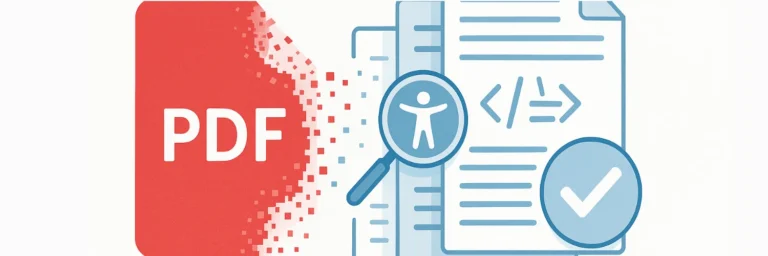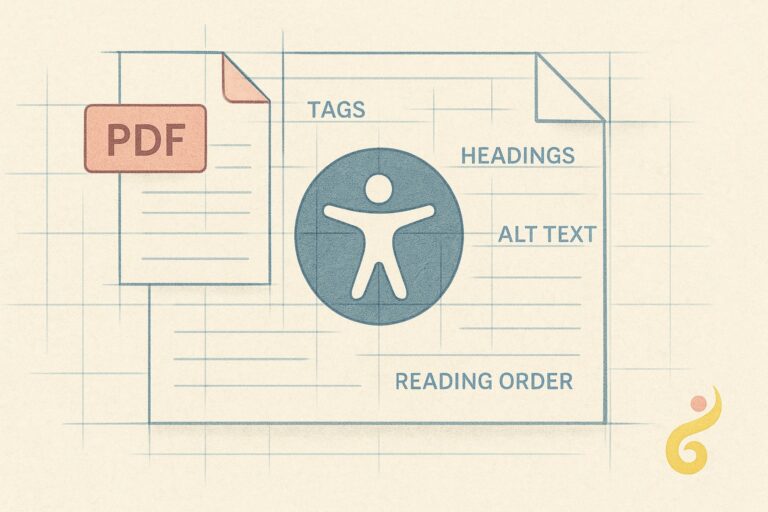Table of Contents
- OECD AI Principles
- UNESCO Recommendation on the Ethics of AI
- Council of Europe’s Work on AI
- World Economic Forum AI Governance Alliance
- World Bank’s AI Initiatives
- G7 Hiroshima AI Process
OECD AI Principles
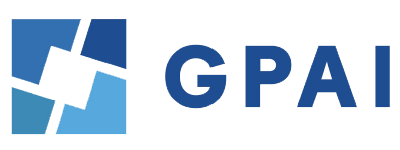
Who are they? The Organization for Economic Cooperation and Development (OECD) is an intergovernmental organization that promotes economic growth and well-being. The OECD was established in 1961 and is headquartered in Paris, France. They have 38 member countries, employ 3500 people, and have over 300 committees that include everything from climate change to AI.
Mission: To promote policies that improve economic and social well-being for people worldwide. The OECD’s motto is “Better policies for better lives”.
Status: Adopted in May 2019, updated in May 2024 to consider new technological and policy developments.
Description: The OECD AI Principles aim to promote the use of AI that is innovative, trustworthy, and respectful of human rights and democratic values. As they state themselves: “The OECD AI Principles promote the use of AI that is innovative and trustworthy and that respects human rights and democratic values. Adopted in 2019 and updated in 2024, they are composed of five values-based principles and five recommendations that provide practical and flexible guidance for policymakers and AI actors.”
Countries use the OECD AI Principles and related tools to shape policies and create AI risk frameworks, building a foundation for global interoperability between jurisdictions. The European Union, the Council of Europe, the United States, and the United Nations and other jurisdictions use the OECD’s definition of an AI system and lifecycle in their legislative and regulatory frameworks and guidance.
Key Principles Relevant to Medium-Sized Enterprises
Values-Based Principles:
- Inclusive growth, sustainable development, and well-being
- Human-centered values and fairness
- Transparency and explainability
- Robustness, security, and safety
- Accountability
Recommendations to Governments:
- Investing in AI research and development
- Fostering a digital ecosystem for AI
- Shaping an enabling policy environment for AI
- Building human capacity and preparing for labor market transformation
- International cooperation for trustworthy AI
Impact on Medium-Sized Enterprises
- OECD Digital for SMEs Global Initiative (D4SME): A dedicated initiative promoting knowledge sharing and learning on how SMEs can seize the benefits of digitalization, including AI adoption. It involves collaborative research exchange and policy dialogue among representatives from OECD governments and the private sector.
- Survey on SME Digitalisation: The OECD has conducted surveys across seven countries (France, Germany, Italy, Japan, Korea, Spain, and the United States) to understand SMEs’ digital journeys and their use of AI technologies, providing valuable insights into adoption patterns.
- Framework for Classification of AI Systems: Offers a user-friendly tool to evaluate AI systems from a policy perspective, helping SMEs characterize and assess AI systems across dimensions such as People & Planet, Economic Context, Data & Input, AI model, and Task & Output.
- Government Support Resources: The OECD survey highlights specific government support programs for digitalization that SMEs can access, addressing concerns about program suitability, red tape, and capacity challenges.
- Policy Guidance for Implementation: Practical guidance for each phase of the AI policy cycle, including policy design, implementation, and intelligence that medium-sized businesses can leverage.
Where to Look for More Information
- OECD AI Principles: Official page with the complete principles and implementation resources
- OECD AI Policy Observatory: Comprehensive tracking of AI policies across jurisdictions
- Going Digital Visualization Tool: Interactive visualization of digital transformation policies and impacts
- State of Implementation of the OECD AI Principles: Detailed report on how countries are implementing the principles
UNESCO Recommendation on the Ethics of AI

Who are they? The United Nations Educational, Scientific and Cultural Organization (UNESCO) promotes world peace and security through international cooperation in education, sciences, and culture.
Status: Adopted by 193 Member States at UNESCO’s General Conference in November 2021.
Description:
UNESCO’s Recommendation on the Ethics of AI was the first global standard-setting instrument on AI ethics. It provides a comprehensive framework to ensure that digital transformations promote human rights and contribute to sustainable development.
The Global AI Ethics and Governance Observatory serves as a global resource for policymakers, regulators, academics, the private sector, and civil society to find solutions to the most pressing challenges posed by Artificial Intelligence.
The Observatory showcases information about the readiness of countries to adopt AI ethically and responsibly and hosts the AI Ethics and Governance Lab, which gathers contributions, impactful research, toolkits, and good practices.
Key Recommendations Relevant to Medium-Sized Enterprises
- Do No Harm: Ensuring AI systems do not cause harm to humans or the environment
- Defined Purpose, Necessity, and Proportionality: AI systems should have clear purposes
- Safety and Security: Ensuring robust AI systems
- Fairness and Non-Discrimination: Promoting fairness in AI decision-making
- Sustainability: Developing environmentally friendly AI systems
- Right to Privacy, Data Protection, and Data Governance: Protecting individual rights
- Human Autonomy and Oversight: Ensuring human control over AI systems
- Transparency and Explainability: Making AI systems understandable
- Responsibility and Accountability: Assigning clear responsibility
- Inclusion and Participation: Promoting inclusive approaches to AI development
Impact on Medium-Sized Enterprises
- Business Council for Ethics of AI: A collaborative platform co-chaired by Microsoft and Telefonica that allows companies to exchange experiences and promote ethical practices within the AI industry. Medium-sized enterprises can join this council to gain insights and share their experiences.
- Readiness Assessment Methodology (RAM): A concrete assessment tool to evaluate a company’s readiness for ethical AI implementation across five dimensions: legal/regulatory, social/cultural, economic, scientific/educational, and technological/infrastructural.
- Ethical Impact Assessment Tool: A practical tool designed and implemented by the Business Council for Ethics of AI to help companies assess the ethical implications of their AI systems and ensure alignment with UNESCO’s principles.
- AI Ethics Training Programs: Specific training modules to promote public understanding of AI and data through education, digital skills, and AI ethics training, helping medium-sized businesses build internal capacity.
- Multilateral Cooperation Network: Access to a network of global tech companies committed to implementing UNESCO’s Recommendation, including conducting due diligence to meet safety standards, identifying adverse effects of AI, and implementing mitigation measures.
Where to Look for More Information
- UNESCO Recommendation on the Ethics of AI: Comprehensive overview of the complete recommendation
- UNESCO’s Global AI Ethics Observatory: Resource center for policymakers, regulators, academics, and businesses
- Ethics of Artificial Intelligence Implementation Guide: Practical guide for implementing the recommendation in various contexts
- AI Ethics: 8 Global Tech Companies Commit: Information on tech industry adoption and implementation
Council of Europe’s Work on AI
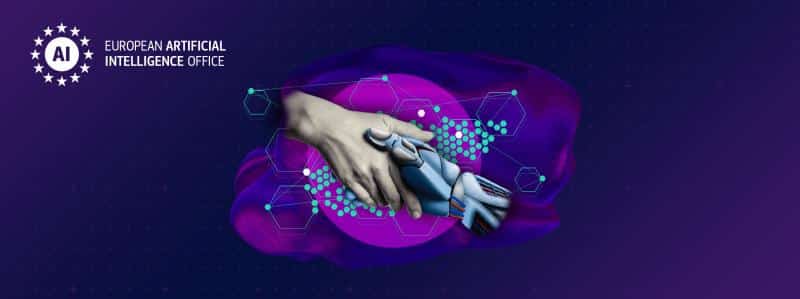
Who are they? The Council of Europe is an international organization founded in 1949 to uphold human rights, democracy, and the rule of law in Europe. It has 46 member states.
Status: The Framework Convention on Artificial Intelligence was adopted in Strasbourg in 2023, representing the culmination of work that began with the Ad Hoc Committee on Artificial Intelligence (CAHAI) in 2019.
Description:
The Council of Europe’s work on AI began with the establishment of the Ad Hoc Committee on Artificial Intelligence (CAHAI) in 2019, which was succeeded by the Committee on Artificial Intelligence (CAI) in 2021. These committees worked on drafting the Framework Convention on Artificial Intelligence, which was adopted in Strasbourg during the annual ministerial meeting of the Council of Europe’s Committee of Ministers in 2023.
Key Focus Areas Relevant to Medium-Sized Enterprises
- Protection of Human Rights: Ensuring AI systems uphold human rights
- Democracy and Rule of Law: Establishing common minimum standards for AI systems
- Multi-Stakeholder Participation: Involving 46 member states, the EU, and 11 non-member states, plus private sector, civil society, and academia
Impact on Medium-Sized Enterprises
While the Council of Europe does not offer direct programs or funding specifically for medium-sized enterprises, SMEs can benefit from related European Union initiatives:
- European AI Office Resources: Access to tools, methodologies, and benchmarks developed by the European AI Office for evaluating AI models, ensuring medium-sized businesses can implement trustworthy AI systems that comply with international standards.
- InvestAI Initiative Support: Financial and technical support through the EU’s InvestAI initiative, which includes funding through Horizon Europe and the Digital Europe program dedicated to generative AI development and implementation.
- AI Innovation Package: Direct support through the European Commission’s AI innovation package designed specifically for AI startups and SMEs, including financial assistance, encouragement of public and private investments, and accelerated access to Common European Data Spaces.
- Compliance Framework: Though not providing direct funding, the Council of Europe’s Framework Convention on AI offers medium-sized enterprises a clear compliance roadmap that helps them navigate international AI regulations and demonstrate their commitment to human rights and ethical AI.
Where to Look for More Information
- Council of Europe’s AI Website: Official portal for the Council’s AI initiatives
- Framework Convention on AI: Complete information on the landmark AI convention
- Committee on Artificial Intelligence (CAI): Information on the committee that drafted the convention
- International AI Treaty Resources: External analysis of the convention and its implications
- European Commission’s Engagement: The EU’s approach to implementing the convention
World Economic Forum AI Governance Alliance
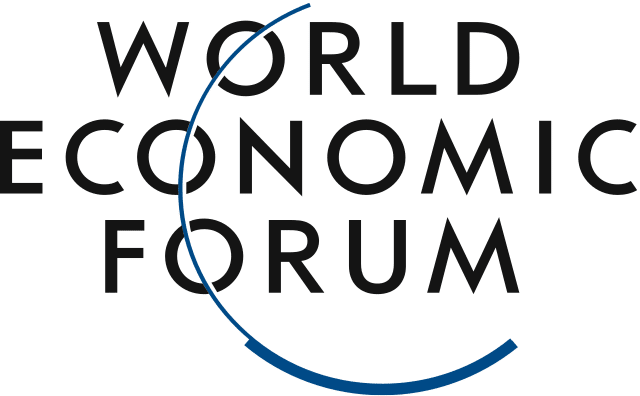
Who are they? The World Economic Forum is an international organization for public-private cooperation, bringing together the foremost political, business, cultural and other leaders of society to shape global, regional and industry agendas.
Status: Launched in June 2023, following the Responsible AI Leadership Summit in April 2023.
Description:
The World Economic Forum AI Governance Alliance (AIGA) has brought together over 200 organizations and thought leaders, fostering responsible AI practices across systems design, industry applications, and governance. It continues to engage in global multistakeholder communities, addressing contemporary AI governance challenges.
Key Focus Areas Relevant to Medium-Sized Enterprises
- Multistakeholder Approach: Uniting industry leaders, governments, academic institutions, and civil society organizations
- Ethical Considerations: Ensuring ethical frameworks at every stage of the AI value chain
- Inclusive and Sustainable Solutions: Fostering diversity of perspectives for long-term solutions
- Safe Systems and Technologies: Addressing challenges and opportunities from generative AI
- Responsible Applications and Transformation: Exploring rapid adoption and impact of generative AI
- Resilient Governance and Regulation: Navigating the global AI governance landscape
Impact on Medium-Sized Enterprises
- Presidio AI Framework: A comprehensive, actionable framework for ensuring the safety and ethics of generative AI models, providing medium-sized businesses with an expanded AI life cycle methodology, robust risk guardrails, and a shift-left approach for early safety integration.
- Use-Case Based Transformation Guide: “Unlocking Value from Generative AI” provides specific guidance for responsible AI adoption with emphasis on business impact, operational readiness, and investment strategy tailored to different business sizes.
- Global AI Governance Sandbox: A testing environment where businesses can refine their AI governance approaches before full implementation, reducing the risks and costs associated with compliance efforts.
- Multistakeholder Collaboration Platform: Access to a network of 200+ organizations and thought leaders, providing medium-sized businesses with opportunities to connect with potential partners, experts, and resources they might not otherwise have access to.
- Resource Mobilization Initiatives: Specific funding and support programs focused on exploring AI benefits in key sectors like healthcare and education, with resources mobilized to ensure equitable access to AI technology.
Where to Look for More Information
- World Economic Forum AI Governance Alliance: Official homepage with current initiatives and resources
- AI Governance Alliance Briefing Paper Series: Comprehensive guidance for businesses on AI governance
- The Presidio Recommendations on Responsible Generative AI: Complete policy framework for generative AI
- Industries in the Intelligent Age Report Series: Industry-specific guidance for AI implementation
World Bank’s AI Initiatives

Who are they? The World Bank is an international financial institution that provides loans and grants to the governments of low- and middle-income countries for the purpose of pursuing capital projects and policy reforms.
Status: Active initiatives with ongoing development, building on the World Bank’s data access and transparency policies.
Description:
The World Bank has been actively involved in AI governance since the early 2010s, with a significant shift in its approach to information disclosure starting from July 1, 2010, with the implementation of the Access to Information (AI) Policy. The policy has undergone several modifications to enhance transparency and accountability, including the creation of an Open Knowledge Repository and the launch of the Open Finances platform.
Key Focus Areas Relevant to Medium-Sized Enterprises
- Transparency: Ensuring that AI processes and technological advancements are transparent
- Accountability: Establishing clear guidelines for data privacy and security
- Fairness and Ethics: Implementing ethical guidelines to mitigate risks like bias and privacy violations
- Digital Infrastructure: Supporting the development of reliable digital infrastructure
- Investment in Local Talent: Encouraging investment in local talent for equitable AI benefits
- Risk Mitigation: Addressing risks such as bias, privacy violations, and lack of transparency
Impact on Medium-Sized Enterprises
- MALENA Project: An AI-powered platform that extracts investment insights from emerging markets Environmental, Social and Governance (ESG) data, helping medium-sized enterprises make informed investment decisions based on concrete data analysis.
- Kognetics Platform: Uses AI to identify companies in emerging and developing markets that are attractive for investment, providing ongoing growth analysis that identifies specific opportunities and critical gaps based on market trends and competitor activity.
- GovTech Innovation Lab: Applies AI to inform country-level and global governance challenges, offering SMEs tools and insights to improve transparency, efficiency, and compliance in their operations.
- AI Trustworthiness Training: Provides specific training on AI trustworthiness for individuals responsible for acquiring or procuring AI systems, covering risks and benefits to help acquisition professionals determine whether software meets performance standards and non-discrimination requirements.
- Public-Private Partnership Support: Concrete support for local ecosystem development through structured partnerships, including upskilling workers and building AI talent pipelines tailored to regional business needs.
Where to Look for More Information
- World Bank AI Documents & Reports: Official disclosure mechanism for World Bank’s reports on AI and development
- Harnessing Artificial Intelligence for Development: Comprehensive policy and regulatory framework
- The Role of AI in Supporting Development in Emerging Markets: Analysis of AI’s potential in emerging markets
- DIME Artificial Intelligence: World Bank’s initiative leveraging AI for impact evaluation
G7 Hiroshima (2023) AI Process

Who are they? The G7 (Group of Seven) is an informal grouping of seven of the world’s advanced economies: Canada, France, Germany, Italy, Japan, the United Kingdom, and the United States.
Status: Launched in May 2023 at the G7 Hiroshima Summit under Japan’s presidency, with ongoing implementation and development. (Unclear 2024 updates, will be researching this…)
Description:
The G7 Hiroshima AI Process has led to the creation of the Hiroshima AI Process Comprehensive Policy Framework, which includes the “Hiroshima Process International Guiding Principles for All AI Actors” and the “Hiroshima Process International Code of Conduct for Organizations Developing Advanced AI Systems.”
Key Focus Areas Relevant to Medium-Sized Enterprises
- Guiding Principles: Aimed at all AI actors, covering aspects such as publicly reporting advanced AI systems’ capabilities and domains of inappropriate use
- Code of Conduct: Applies to organizations developing advanced AI systems, including foundation models and generative AI
- Safety, Security, and Trustworthiness: Promoting safe, secure, and trustworthy AI systems
- Inclusive Global Governance: Building inclusive global governance on AI
- Research and Analysis: Establishing centers for research on AI safety evaluation methods
Impact on Medium-Sized Enterprises
- Hiroshima AI Process Reporting Framework: A practical online platform where organizations can report their AI practices and policies, demonstrating alignment with international principles and gaining credibility with customers and partners.
- AI Safety Institute Resources: Direct access to research on AI safety evaluation methods conducted by Japan’s AI Safety Institute, providing medium-sized businesses with specific tools and methodologies to assess and mitigate risks in their AI systems.
- Tokyo Center of GPAI: An international public-private partnership platform where medium-sized enterprises can engage with global stakeholders and access cutting-edge research on AI governance, including practical implementation guides.
- HIGP’s 12 Core Principles Implementation Tools: Actionable guidelines covering risk management, governance, stakeholder engagement, and ethical considerations, with specific checkpoints and assessment criteria that businesses can incorporate into their AI development processes.
- OECD Implementation Support: Direct support from the OECD and the Hiroshima AI Process Friends Group (49 countries and regions) to implement international guidelines, providing businesses with resources for ensuring compliance with global standards.
Where to Look for More Information
- Hiroshima AI Process Official Website: Complete information portal for the G7 Hiroshima AI Process
- Documents of Achievement: Official documents including the Guiding Principles and Code of Conduct
- G7 Hiroshima Process on Generative AI Report: OECD report summarizing opportunities and challenges
- G7 Leaders’ Statement on the Hiroshima AI Process: Official statement from G7 leaders


